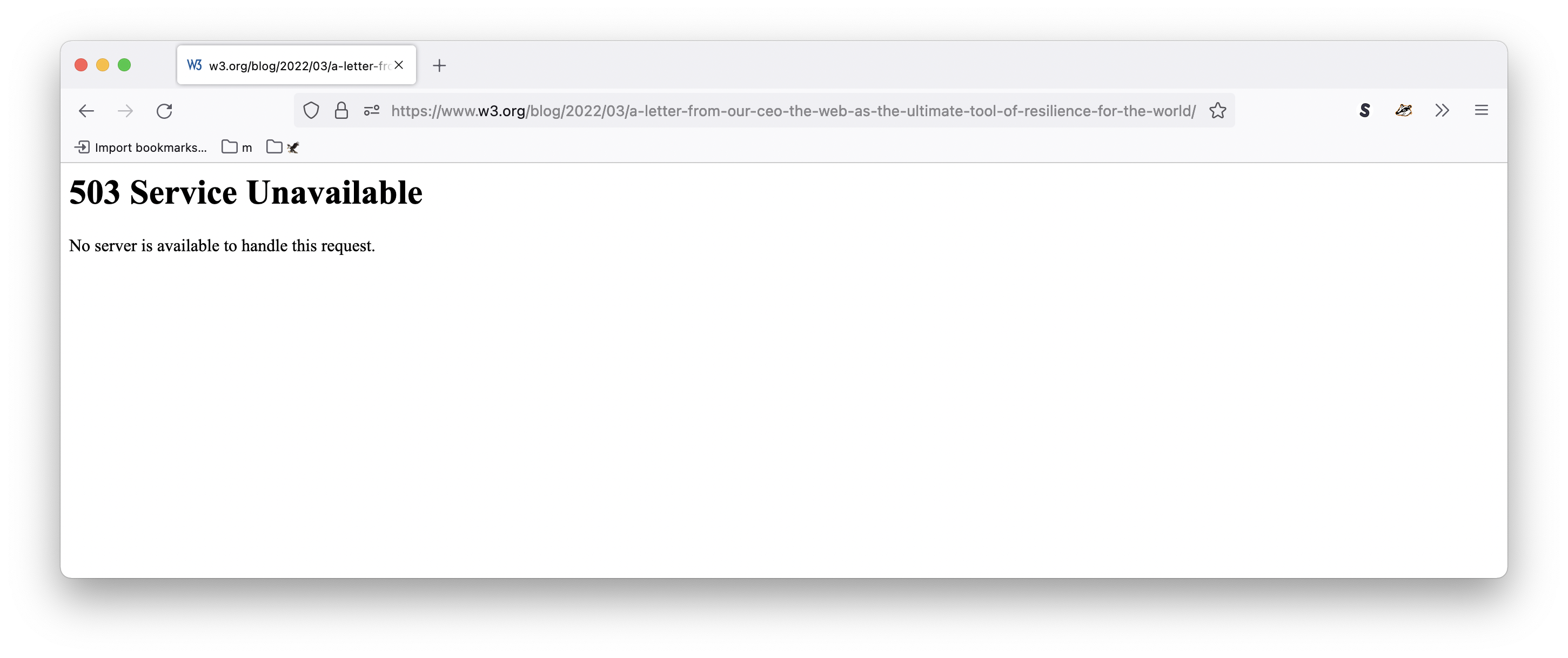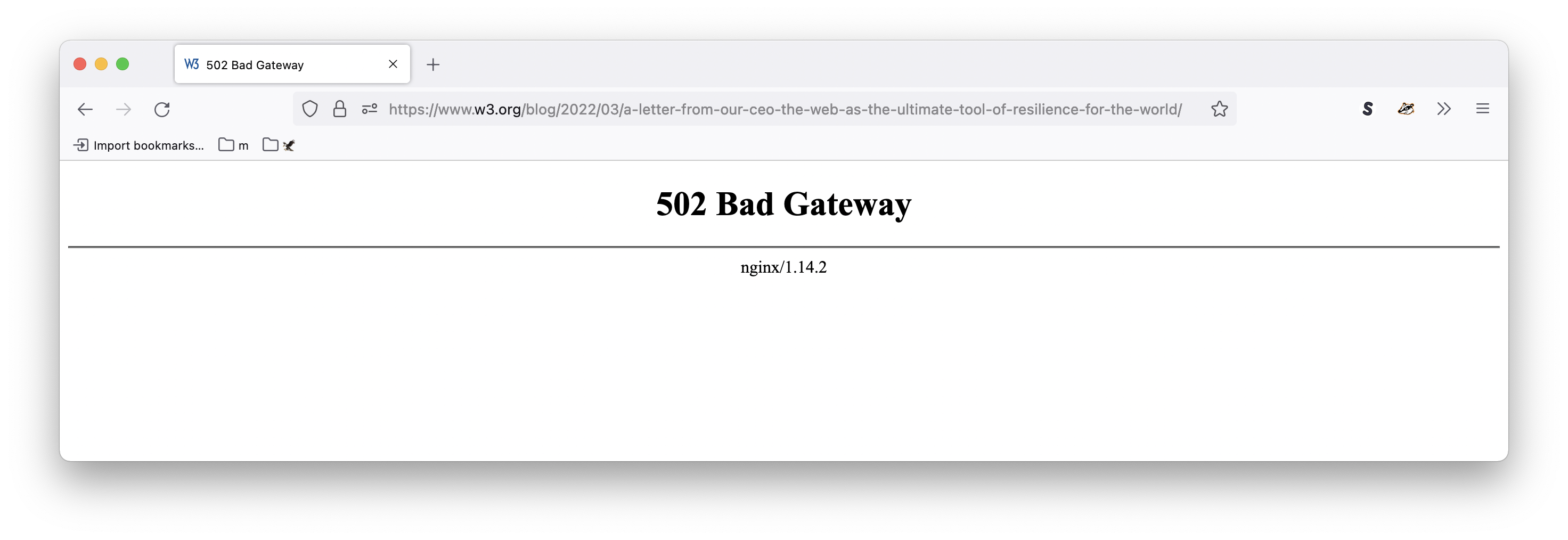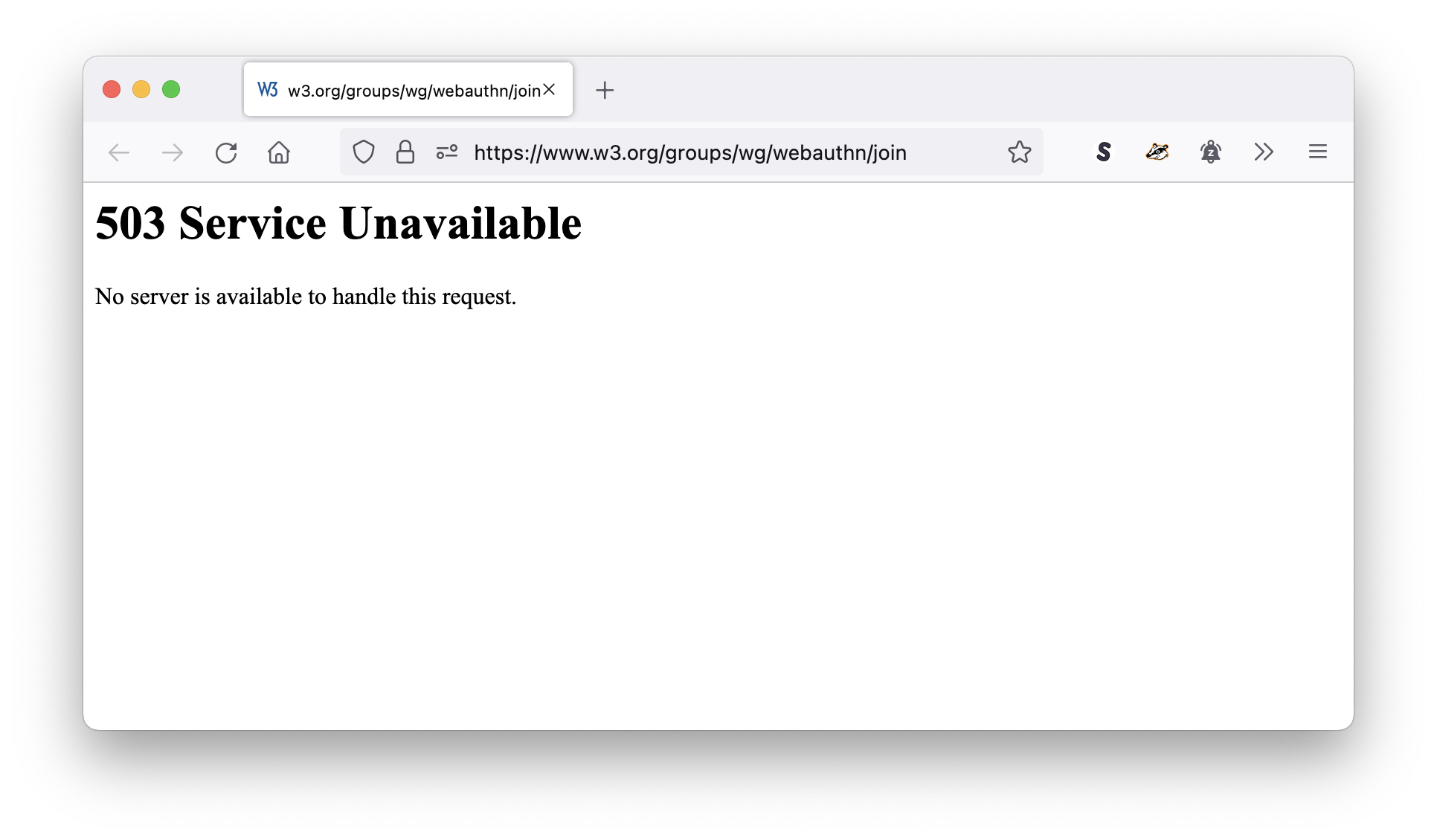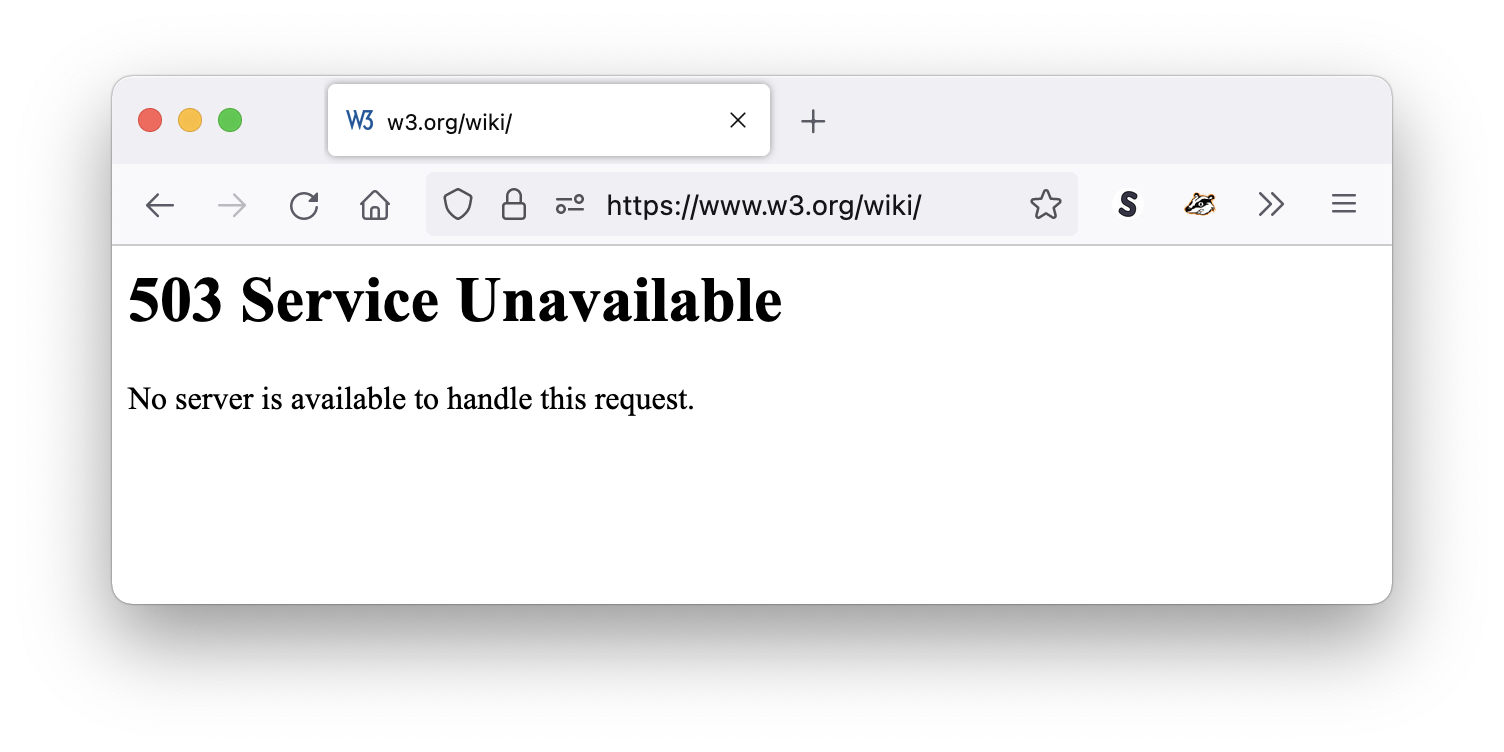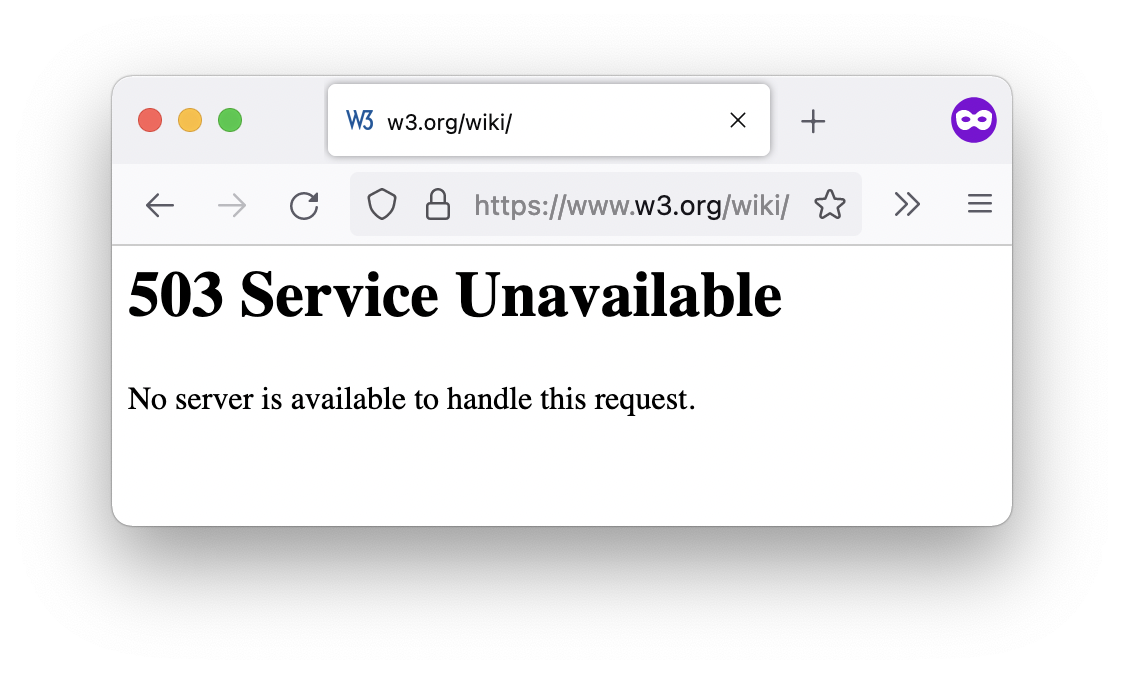W3C

The World Wide Web Consortium (W3C) is an international standards organization where several IndieWeb community members participate in the Social Web Incubator Community Group, and were previously active in the Social Web Working Group, which produced several W3C Recommendations for key IndieWeb building blocks.
W3C Recommendations and Notes
The following W3C Recommendations were developed as IndieWeb building blocks and edited by members of the IndieWeb community as part of the W3C Social Web Working Group (SocialWG):
- 📄Webmention - https://www.w3.org/TR/webmention
- 📄Micropub - https://www.w3.org/TR/micropub
- 📄WebSub - https://www.w3.org/TR/websub
The following W3C Notes published in-progress work from the IndieWeb community:
- 📃IndieAuth - https://www.w3.org/TR/indieauth
- 📃JF2 - https://www.w3.org/TR/jf2
- 📃Post Type Discovery - https://www.w3.org/TR/post-type-discovery
These standards are now evolved in the IndieWeb community on https://spec.indieweb.org/, e.g.:
- https://webmention.net/draft/
- https://micropub.spec.indieweb.org/
- https://jf2.spec.indieweb.org/
- https://indieauth.spec.indieweb.org/
The SocialWG also published the following W3C Recommendations which are implemented by IndieWeb services & software in use by many in the community:
Social Web Incubator Community Group
AKA "SWICG". This section is a stub. See: https://www.w3.org/wiki/SocialCG
Social Web Working Group
In 2014, W3C launched the Social Web Working Group, co-chaired by IndieWebCamp participants  Tantek Çelik and Evan Prodromou, and IBM representative Arnaud Le Hors. The working group’s home page was its wiki page at https://www.w3.org/wiki/Socialwg. It closed on 2018-02-13 and subsequent work on specs has continued in the IndieWeb community.
Tantek Çelik and Evan Prodromou, and IBM representative Arnaud Le Hors. The working group’s home page was its wiki page at https://www.w3.org/wiki/Socialwg. It closed on 2018-02-13 and subsequent work on specs has continued in the IndieWeb community.
Spec Development Lifecycle
Workshop on Social Standards
In 2013, W3C organized the Workshop on Social Standards where several IndieWeb community members presented and participated in discussions, and which subsequently drove the creation of the W3C Social Web Working Group.
Downtime
Occasionally W3C’s server and services are down, you may want to keep local copies of key specifications for that reason.
2022-01-22
Many W3C services unavailable due to power outage:
- https://twitter.com/svgeesus/status/1484903789157093376
- "Hey @w3c_systeam https://status.w3.org/ says everything okay but http://w3.org/TR is giving 503 and reporting by email failed as it couldn't contact the mail server"
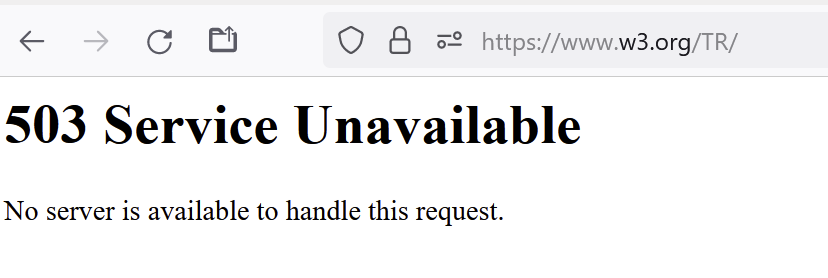 @svgeesus January 22, 2022
@svgeesus January 22, 2022
- "Hey @w3c_systeam https://status.w3.org/ says everything okay but http://w3.org/TR is giving 503 and reporting by email failed as it couldn't contact the mail server"
2022-03-29
W3C blog (and possibly other services) was unreliable most of the day and returned 503 and occasionally 502 errors.
Screenshots of a browser showing https://www.w3.org/blog/2022/03/a-letter-from-our-ceo-the-web-as-the-ultimate-tool-of-resilience-for-the-world/ with errors:
503 Service Unavailable
No server is available to handle this request.
502 Bad Gateway
nginx/1.14.2
2022-04-18
Per https://status.w3.org/incidents/b7v08l2f4dml
Our hosting provider conducted maintenance operations on its network on Monday, April 18, from 17:00 UTC to 23:00 UTC. During this intervention several W3C services were momentarily unavailable.
W3C services for an organization officially joining a Working Group were out for at least an hour today:
Screenshot of a browser window attempting to load https://www.w3.org/groups/wg/webauthn/join showing:
503 Service Unavailable
No server is available to handle this request.
Screenshot of a browser window attempting to load https://www.w3.org/wiki showing:
503 Service Unavailable
No server is available to handle this request.
2022-07-19
W3C wiki (w3.org/wiki) was down for ~30min in the morning (PDT), while w3.org continued to serve without issues.
Screenshot of a browser window attempting to load https://www.w3.org/wiki showing
503 Service Unavailable
No server is available to handle this request.
Resources
W3C hosts various resources at permalinks, e.g. http://www.w3.org/Icons/


